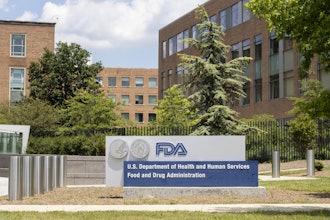DENVER (AP) — Colorado lawmakers Thursday rejected a proposal that would have required genetically engineered food to be labeled, amid fears that the mandate would burden farmers and raise food prices.
A Democratic House committee voted 7-2 against the bill after more than five hours of emotional testimony from mothers seeking labels and farmers saying the requirement would hurt them. The lawmakers ultimately sided with farm groups that said the change would need to be done on a federal level and not by an individual state.
"That's a price Washington should not ask one state's citizens to bear," concluded Rep. Kathleen Conti, R-Littleton.
More than 60 countries require genetically modified foods to be labeled, but the U.S. isn't one of them. Only Alaska has enacted legislation requiring the labeling of genetically engineered fish and shellfish products.
The federal government and dozens more states are considering similar label requirements amid complaints from consumers that genetically engineered foods may be unsafe.
"Who's going to protect us? Who's going to let us know what's in our food?" asked Marie Weller, a Colorado Springs mother of three who brought her daughters and son to the hearing.
The bill's sponsor, Democratic Rep. Jeanne Labuda of Denver, said consumers deserve to know more about how their food is produced.
"People want to know what's in the food that we're eating," said Labuda, who argued that food producers already have to label foods containing certain additives or allergens, so an added GMO label shouldn't be a burden.
"For some reason, we are not afforded that same information when it comes to genetically engineered foods," Labuda said. "We consumers deserve to know that information."
Lawmakers also heard from a wheat farmer who said genetically modified foods can require fewer pesticides and less water, and that label requirements wouldn't help consumers but would burden food producers.
"Should this bill become a law, the real impact will be felt by consumers at the checkout counter," said Dusty Talmon of the Colorado Association of Wheat Growers.
Many scientists say the labels aren't useful because genetically modified or engineered foods are safe. California voters last year rejected a statewide labeling requirement.
The American Association for the Advancement of Science — publisher of Science magazine — has said genetically engineered food is no different from conventional foods and that labels for GMO, or genetically modified organisms, would "mislead and falsely alarm consumers."
One of Colorado's members of Congress has suggested a national labeling law. Democratic Rep. Jared Polis has said consumers need the information.
Labuda said she wasn't sure whether a label requirement would boost food prices. But she said the requirement is worthwhile as consumers face stores full of produce that seems to have changed over the years. Labuda talked about seeing fresh tomatoes in the dead of winter.
"All I know is, they don't taste like tomatoes," she said.





















